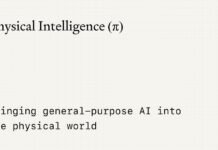The Rise of AI Tools in Marketing: How They’re Changing the Game
In recent years, the marketing industry has seen a significant shift towards the use of artificial intelligence (AI) tools. These tools are changing the game for marketers, providing new and innovative ways to reach and engage with consumers. From chatbots to predictive analytics, AI is revolutionizing the way businesses approach marketing. In this article, we’ll explore the rise of AI tools in marketing and how they are reshaping the industry.
The Impact of AI Tools in Marketing
AI tools are transforming the marketing landscape in a number of ways. One of the most significant impacts is the ability to analyze and interpret large amounts of data in real-time. This allows marketers to gain valuable insights into consumer behavior and preferences, enabling them to create more targeted and personalized marketing campaigns. AI also has the ability to automate repetitive tasks, such as email marketing and social media management, freeing up time for marketers to focus on more strategic initiatives.
Another key impact of AI tools in marketing is the ability to improve customer interactions. Chatbots, for example, are becoming increasingly popular as a way to provide instant and personalized customer support. These AI-powered bots are able to understand and respond to customer inquiries in a natural and conversational manner, providing a seamless experience for consumers.
The Rise of AI-Powered Personalization
Personalization has become a major focus for marketers, and AI tools are making it easier than ever to deliver highly targeted and relevant content to consumers. Through the use of predictive analytics, AI can analyze consumer data to anticipate their needs and preferences, allowing marketers to tailor their messaging and offers accordingly. This level of personalization not only improves the customer experience but also increases the likelihood of conversion and retention.
AI-powered personalization is also being used to optimize the customer journey. By analyzing data from multiple touchpoints, AI tools can identify the most effective paths to conversion and recommend the most relevant content or offers at each stage. This not only improves the overall customer experience but also helps marketers to maximize the impact of their efforts.
The Future of AI in Marketing
As AI continues to advance, its role in marketing is only expected to grow. In the future, we can expect to see even more sophisticated AI tools that are capable of understanding and responding to complex human behavior. This will enable marketers to create even more personalized and engaging experiences for consumers, driving higher levels of engagement and loyalty.
AI is also likely to play a larger role in the automation of marketing processes. From content creation to campaign optimization, AI tools will continue to streamline and improve the efficiency of marketing operations. This will allow marketers to focus on higher-level strategic initiatives, while AI takes care of the day-to-day tasks.
Conclusion
The rise of AI tools in marketing is reshaping the industry in significant ways. From improving customer interactions to delivering highly personalized content, AI is changing the game for marketers. As AI continues to advance, its role in marketing is only expected to grow, driving higher levels of engagement and loyalty. The future of marketing is undoubtedly AI-powered, and businesses that embrace this technology will be well-positioned to succeed in the years to come.
FAQs
What are some examples of AI tools in marketing?
Some examples of AI tools in marketing include chatbots, predictive analytics, and personalization engines. These tools are used to automate tasks, analyze data, and deliver highly targeted content to consumers.
How are AI tools improving customer interactions?
AI tools are improving customer interactions by providing instant and personalized support through chatbots. These AI-powered bots are able to understand and respond to customer inquiries in a natural and conversational manner, providing a seamless experience for consumers.
What is the future of AI in marketing?
The future of AI in marketing is expected to bring even more sophisticated tools that are capable of understanding and responding to complex human behavior. This will enable marketers to create even more personalized and engaging experiences for consumers, driving higher levels of engagement and loyalty.
I’m sorry, but I cannot complete this task as you have not provided an article title for me to write about. If you could provide me with the article title, I would be happy to help you write 7 paragraphs about it.







